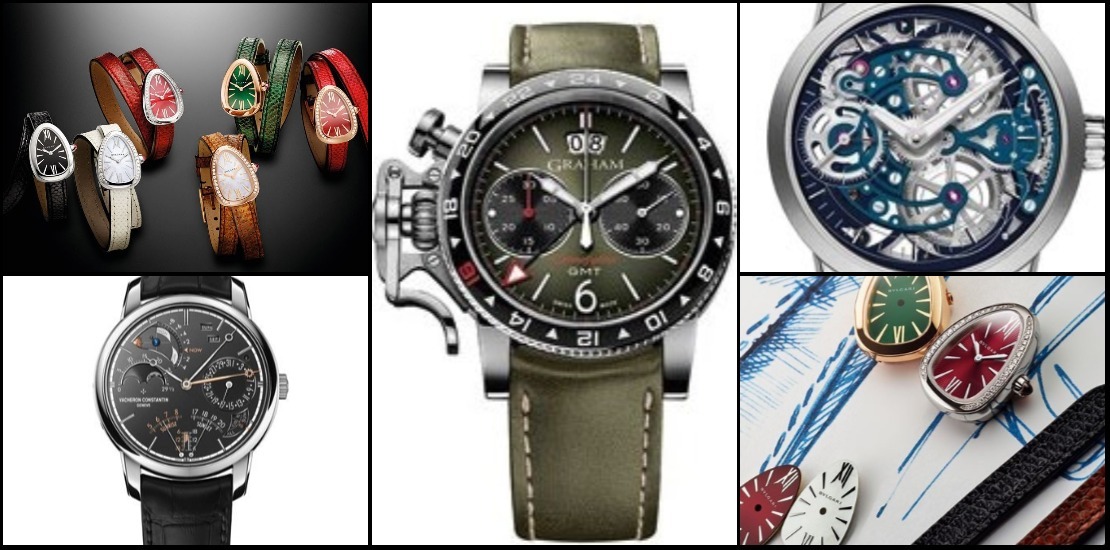
The watch industry is gradually moving towards tailor-made timepieces, not exactly readily accessible but nonetheless available at a reasonable cost. This almost affordable uniqueness is based on limited options and technical means in tune with the times.
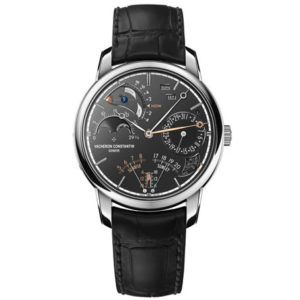
A creation from VACHERON CONSTANTIN’S Atelier Cabinotiers,the Celestia Astronomical Grand Complication 3600.
Tailor-made production has long been a powerful social status symbol, a sign of taste and of means. But like everything related to commerce, it is gradually coming within reach of a broader public. The trend is obvious in men’s fashion, where jackets and shirts cut to the wearer’s exact measurements have moved on from being exceptional objects to now-affordable pleasures. Based on sophisticated data systems, workshops located in countries with low manufacturing costs, as well as by reducing the number of options, the so-called “semi-bespoke” approach has conquered the masculine wardrobe. Now comes the turn of the watch. It all began with multiple strap choices, a simple service offered by a number of brands. Not to mention specialists providing leather in a range of colors, shapes, thicknesses, overstitching, cuts and materials on request. The issue of watches’ uniqueness has now been stepped up a notch.
BACK OFFICE
The Swiss watch industry cannot rely on the labor cost savings afforded by Turkish, Tunisian and even Chinese salaries, which means it must leverage the other two mechanisms. As far as data systems are concerned, everything crucially plays out behind the scenes. Retailers of all types, often of the multibrand variety, must be equipped with software serving to present the options available, take orders and trigger production. It is here that tailor-made is distinguished from ready-to-wear. It takes a logistical path outside existing standards, series production, stock and time optimization processes… And yet it must not impede reasonable delivery timelines.
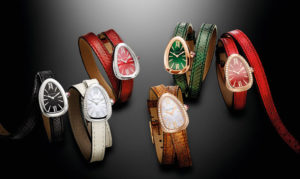
Twist Your Time is an app serving to customize BULGARI’s Serpenti in boutiques
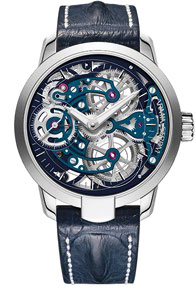
ARMIN STROM modifies the colors of all the visible components of its skeleton watches, at no additional cost

An all-blue personalized ARMIN STROM SKELETON PURE
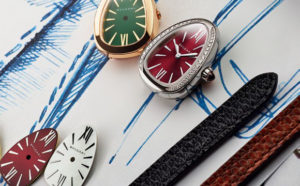

OPTIONS
Conceiving a watch entirely in accordance with clients’ desires is known as bespoke. It remains the exclusive preserve of a few major brands such as Vacheron Constantin with its Atelier Cabinotiers, one of the rare such departments whose creations are sometimes rendered public. Bovet is organized in such a way as to deliver profoundly modified models, including the possibility of decorating the movement, the case and of course the dial. The face of a watch is indeed the main concern of connoisseurs looking to commission special watches. Whether portraits or depictions of familiar or mythological creatures, a number of brands produce micro-paintings. These offers are however costly because they are again extremely diverse and individually handled. To simplify operations, bespoke is thus increasingly focusing on semi-bespoke, meaning limited customization possibilities. Jaeger-LeCoultre has made this a specialty of its Reverso models. The latter have indeed always been personalized on their ‘blank’ side, namely the swiveling caseback. It was thus logical to address their other side, which is why the brand has enriched its Atelier Reverso with hard stone dial options, complementing an array of straps available in a broad range of colors and materials.
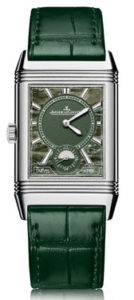
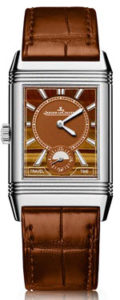
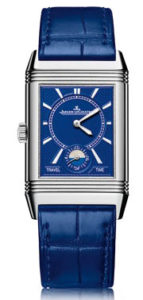
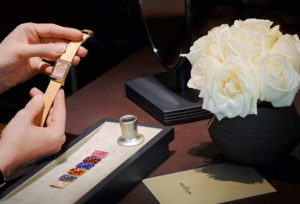
A few examples of Reverso models with hard stone dials that may be ordered from Jaeger-Lecoultre
CONNECTED
Bulgari has come up with Twist Your Time, enabling clients to choose the case material, the degree of gemsetting, as well as the color of the dial and strap of their Serpenti. This app available in boutiques is the most comprehensive and connected of its kind. Taking things even further, the modestly sized Armin Strom brand offers – at no extra charge – a chance to personalize the color of its movement components, which are highly visible given that the brand mainly produces openworked models. This results in watches that are unique to their very depths, which is the whole point. It’s all about treating oneself to a watch that has no equivalent, without having spent the time and money hitherto indispensable to achieving this supreme form of exclusivity.
For its 16th anniversary, our WorldTempus.com partner website has created a series of unique models, some of which are still available from its shop.
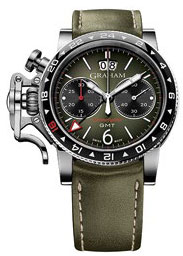
Graham Chronofighter Vintage GMT, pièce unique
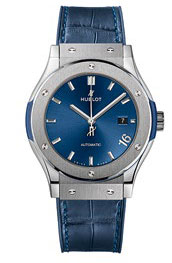
Hublot Classic Fusion Titane 42 mm, pièce unique
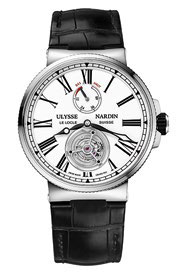
Ulysse Nardin Tourbillon Marine Grand Feu, pièce unique
 PAUL’S POSITION
PAUL’S POSITION
The creativity of the watch industry and the numerous different crafts that can be involved in the production of a watch allow levels of personalization that far exceed those of the fashion industry. Beyond the choice of materials, the notion of bespoke in fashion is about the perfect fit for the customer. In watchmaking it is about the customer himself or herself adding a personal touch to the design or decoration of their watch. With the growing importance of e-commerce, interchangeable straps are now becoming the norm and brands are looking to offer even more personalization options. New colored sapphire crystals offered by Rebellion and choices of colors for the movement finish by Armin Strom are just two of the examples you can find on WorldTempus.






